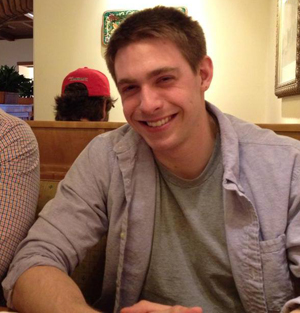by Jordan Houser
When I became editor of The Chimes a year ago, I knew that my final two semesters at this university would revolve around the newspaper. I accepted this. I didn’t question whether or not the commitment was worth my time, and I allowed it to become the paramount memory of my undergraduate life. With this final issue, I will say goodbye to the newspaper. In many ways, this means more than my May graduation will.
When May 3 hits, we’re done. College is over. The four years of early adulthood that allow us inconsequential freedom have passed. That’s the beauty of where we’ve been as students; we’re caught between adolescent safeties and finding where the world wants us to be. We are afforded the freedom of adulthood, without being forced to face real-world repercussions.
Several weeks ago during spring break, I had a conversation about what shapes a person’s expectations of the world.
Our experiences are filtered through the lens of media; the mind of a 21st century American is constantly subject to some form of storytelling. We call this entertainment and treat it as a trivial part of American life. Through news broadcasting, music, novels, television shows, movies, and any other form of entertainment, individuals construct a view of the world. They write their own world into existence.
Writing and producing becomes self-re-creating this way. To see another writer capture a reality that we struggle to articulate ourselves is like remembering at mid-day a dream from the night before.
When those moments occur, there’s something sharply empowering yet still terrifying about knowing another person is able to explain the aspects of life that we struggle to grasp. This is what we use to define our expectations of life: other minds, writers, constructing our view of the world.
Before any of us stepped onto a college campus, the undergraduate lifestyle had been shaped in our minds. For the most part, we have lived within those expectations. Each year, graduating seniors are forced to press them outward.
By now, we’ve been asked over and over how we feel about graduation: Are we ready? What will we do after graduation? How do we feel about moving on? This has gone on to the point that the answers are rehearsed: It’s bittersweet. I’m not sure how I feel. There’s good and there’s bad.
When college ends, the lifestyle also does. I recently became insufferably aware of my time at Capital ending. I started to question how much of my college experience was my own and how much was constructed by my media-ridden expectations. I find myself asking the question, what was real?
It is only when epochs of our lives end that we look back at them as separated from the entirety of our existence. Chapters of life are created to allow for memory organization, but they often render us unable to see the wholistic nature of life.
This is not the end, but it isn’t a beginning either. It is one. It is life, for all of us.
jhouser@capital.edu

